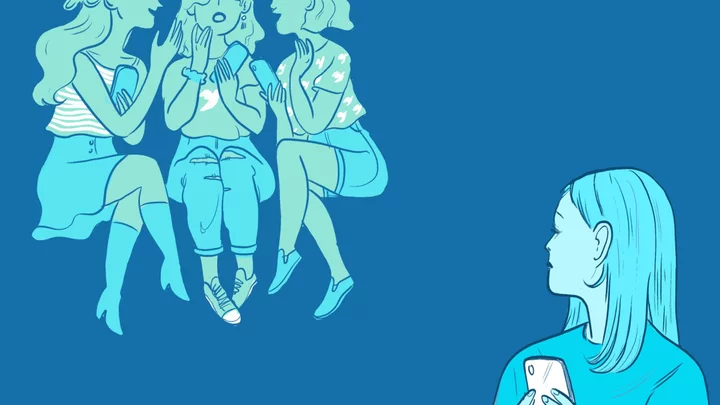
Charlotte Dawson gives birth to second child with Matt Sarsfield after miscarriage
Charlotte Dawson has welcomed her second child with fiancée Matt Sarsfield, several days after a “false alarm” that saw her rushing to the hospital. The reality star, 30, shared a photo of her cradling her newborn son while laying in a hospital bed on her Instagram Stories early on Sunday morning (30 July). She wrote in the caption: “Guys he’s here!!! I can’t believe it!!! I came in at 1am I had him by 2.13am.” Dawson, whose father was the late comedian Les Dawson, told her 1.3 million followers: “Can’t wait to update you all as soon as but Matthew has nipped to get me a Maccies [McDonald’s] and I’m having cuddles.” Dawson and Sarsfield, who have been engaged since 2020, are also parents to two-year-old son Noah. In another post, showing Sarsfield holding the baby, Dawson wrote: “He’s turned up with no Maccies ffs [sic]. But look at my beautiful baby daddy with our boyo [sic]. All happened so fast but thank you for being amazing Matt.” Several days earlier, Dawson revealed that she was rushed to hospital after her water had broken. However, it was a “false alarm” and she was sent home to wait until she went into labour. The Ex On The Beach and Celebs On The Farm star wrote in a post at the time: “Oh guys it’s been a bloody weird 24 hours… My waters broke last night but no pain, managed to sleep through it. Just getting checked now as movement’s been slow, happier I can hear his little heartbeat now.” Last year, Dawson revealed that she had suffered a miscarriage at 10 weeks that left her “heartbroken beyond words”. Her second baby has been dubbed her “rainbow baby”, a term that refers to a child born after the previous loss of a baby due to miscarriage, stillbirth, or death during infancy. She opened up about how she and Sarsfield were “over the moon” when they first discovered she was pregnant, but later it turned out it was “just not meant to be”. “Miscarriages are so common and not spoken about enough. We are so heartbroken right now, have no words and just don’t feel up to posting being my happy silly self right now,” she said. After learning that she was pregnant again, Dawson said she felt “very blessed and very happy”. “We were absolutely heartbroken about the miscarriage last year,” she added. “It came as a shock when I found out last April. It was like we’d just come to the realisation that we were having a baby and I lost it at 10 weeks.” Read More Blood, guts and cheap cuts: We need an alternative to eating animals – and ‘ethical meat’ isn’t the answer Strictly Come Dancing’s Janette Manrara gives birth to first child with fellow dancer Aljaz Skorjanec Jamie Lee Curtis says it is her ‘job’ to ‘fight’ against transphobia on behalf of daughter How to sleep during hot weather, according to experts How to keep your pet safe and healthy during a heatwave This is why you keep waking up at 4am – and what you can do about it
2023-07-30 18:55

Britain: 1st babies born in country using DNA from 3 people
Britain’s fertility regulator has confirmed the births of the U.K.'s first babies created using an experimental technique combining DNA from three people
2023-05-10 19:59

A 2-year subscription to this secure VPN is on sale for 50% off
SAVE 50%: NordVPN is a seriously secure service for protecting your digital privacy. A two-year
2023-05-17 12:21

Mark Rylance says he initially took a ‘distilled garlic solution’ instead of Covid vaccine
Mark Rylance has revealed “alarm bells” rang for him when the British population was encouraged to get the Covid vaccine in 2021. In a new interview, Rylance, 63, said he wasn’t convinced he needed the vaccine, adding that “science started to sound like religion” during the pandemic. Speaking to The Sunday Times, the Dunkirk star explained he relied on taking a “very distilled garlic solution”, along with vitamin C. “And I sailed through Jerusalem,” he said. Rylance reprised one of his most well-known roles, as Johnny “Rooster” Byron, in last year’s revival of the 2009 Jez Butterworth play Jerusalem. He told the publication he finally took the Covid vaccine when he travelled to visit his father in the US. Rylance’s comments were made in the context of his forthcoming play Dr Semmelweis, based on the life of maverick Hungarian doctor Ignaz Semmelweis. The British actor reportedly wrote Dr Semmelweis with playwright Stephen Brown before the pandemic began. Rylance said he was researching alternative cancer treatments at the time, adding that he’s sceptical about the effects of chemotherapy. He recalled how a friend allegedly “broke up the cells of a tumour” by using the vibrations from a Tibetan sound bowl. Rylance added: “The body knows how to heal itself. “We don’t need to go in and bombard it with poison. It’s like bombing a city to try and get rid of a little sect of terrorists. You may wipe them all out, but you’re going to breed 25 or 30 [more].” Earlier this month, Rylance revealed that his brother, Jonathan Waters, had died in a cycling accident, aged 60. “I am so sorry to tell you that on the 28 May, my dear brother Jonathan Waters was knocked from his bicycle and tragically died of his injuries,” the statement read. Rylance, who was very close to Waters, said the loss made him question the point of life. “It just makes everything that follows a little bleak. But also that hollowness can be a positive thing, a kind of grail or cup or vessel,” he continued. Rylance also said he believes in life after death, adding: “I think you really can have a very healthy conversation with a soul who has passed over.” The actor said he has spoken to his late grandmother and step-daughter Nataasha van Kampen, using a medium. He admitted that while his views may not be conventional or mainstream, but “don’t cause any harm”. Dr Semmelweis opens at the West End this Thursday 27 June. Read More Billy Nomates asks BBC to take down Glastonbury footage after wave of ‘personal abuse’ Guns N’ Roses review, Glastonbury 2023: Frontrunners for the worst Glasto headline set of all time Wes Anderson took a cast of stars to the Spanish desert and made his best film in years Too cool to love these acts 10 years ago? This year’s Glastonbury is for you Yellowstone creator Taylor Sheridan breaks silence on Kevin Costner’s dramatic exit
2023-06-25 21:58

Bed Bath & Beyond lives on!(line). Overstock.com buys rights to bankrupt retailer and changes name
Overstock
2023-06-30 03:25

DOJ investigating Tesla's EV range exaggerations
Tesla's battery range exaggerations have triggered an investigation from the Department of Justice (DOJ). According
2023-10-25 05:59

Baby eels remain one of America's most valuable fish after strong year in Maine
Fishermen in the U.S.’s only commercial-scale fishing industry for valuable baby eels once again had a productive season searching for the tiny fish
2023-05-27 20:27

Logan Paul’s Prime responds to backlash over energy caffeine levels
Logan Paul and KSI’s Prime has defended the levels of caffeine in its beverages after facing a backlash. It comes after health experts called on the US Food and Drug Administration to investigate the energy drink company. A 12 oz can of Prime, which was founded by YouTube stars Logan Paul and KSI, contains 200mg of caffeine, equivalent to about half a dozen Coke cans or nearly two Red Bulls. The brand released a statement to People on July 11, saying: “PRIME Energy, sold in a can, dropped in 2023 and contains a comparable amount of caffeine to other top selling energy drinks, all falling within the legal limit of the countries it’s sold in.” Sign up to our free Indy100 weekly newsletter The spokesperson for the brand said that the drink “complied with all FDA guidelines” prior to hitting the market and indicated on the packaging that PRIME energy drinks are “not made for anyone under the age of 18.” “As a brand, our top priority is consumer safety, so we welcome discussions with the FDA or any other organisation regarding suggested industry changes they feel are necessary in order to protect consumers,” they added. Earlier this week, New York Senator Charles Schumer urged the FDA to launch a probe into Paul’s energy drink, which became an overnight sensation when it launched last year. “One of the summer’s hottest status symbols for kids is not an outfit, or a toy – it’s a beverage,” the Democratic senator said in a letter to the FDA. “But buyer and parents beware because it’s a serious health concern for the kids it so feverishly targets." Prime has become a phenomenon since being launched in 2022, to the extent it’s sold for ridiculous prices, made one shop in Wakefield go viral, and even been reviewed by foul-mouthed chef Gordon Ramsay. The collaboration between Paul and KSI (real name Olajide “JJ” Olatunji) was announced back in January last year, with the pair just recently touring Munich, Barcelona, Copenhagen and Oslo to promote the drink. Have your say in our news democracy. Click the upvote icon at the top of the page to help raise this article through the indy100 rankings.
2023-07-15 17:51

Christian Cowan launches limited edition Candy Crush beanbag dress
Designer Christian Cowan has done it again, with a creative garment for commuters everywhere. Enter, The Sweet Seat. The limited edition collaboration with Candy Crush Saga is inspired by the dreaded morning commute in the city. It offers a wearable seat adorned with bright colours and shapes taken from the popular game. Cowan, best known for his bold and unexpected collections, has worked with Candy Crush to put his playful and humorous touch on the Sweet Seat, bringing it to life in a way that doesn’t compromise fashion for comfort. His approach provides a sweet solution that puts the fun back in functional. With campy and Candy-tastic designs, the piece blends Cowan’s creativity and high fashion prowess with Candy Crush’s world of fun colours, candies and patterns. Sign up for our free Indy100 weekly newsletter "This piece is inspired by the fun that Candy Crush brings to mundane tasks like commuting," Cowan said. "Public transit could use a dose of glamour, especially in New York City and London, and the Sweet Seat brings that glamour in a fun, fashionable, and over-the-top way. What I love about this collaboration is that it brings a joyful solution to an everyday problem in a way that’s both out-of-the-box and camp." The Sweet Seat features a tear-drop silhouette garment that can be worn solo as a dress, or over the top of an outfit as an accessory. Functionally, the garment works like a bean bag, the wearer can literally sit back and take a seat anywhere they’d like. "Our loyal fans who play Candy Crush on the go love the colour and fun that we bring to their everyday lives," said Luken Aragon, VP of marketing at Candy Crush Saga. "Whether they’re waiting in a long queue or battling the daily commute - without a seat, we want to be able to help bring them that joy and vibrancy to their day so that nothing gets in the way of levelling up. Collaborating with Christian to bring to life the candies that these players know and love - and can now wear - has been truly divine." This limited-edition item is available for purchase for $1,000 / £786.92. Have your say in our news democracy. Click the upvote icon at the top of the page to help raise this article through the indy100 rankings.
2023-07-31 20:26

Show Some Skin In These 28 Low-Back One-Piece Swimsuits
The swim scene has come a very long way. Where itty-bitty string bikinis were once de rigueur for looking sexy at the beach and by the pool, we're now opting for on-trend bathing suits that don't show off too much skin and rather show off just enough. To prove it, we're calling out the Goldilocks of swimsuits: one-pieces of the low-back variety. High up front (to avoid any wave-induced slippage) and low in the back, these pieces officially end the days of compromising coverage for sex appeal.
2023-05-18 22:48

Get a pair of Apple AirPods Max headphones for nearly $100 off
SAVE $99.01: Get a pair of Apple AirPods Max for $449.99 when you select the
2023-09-08 01:22

'Looking like popcorn': Internet trolls Kylie Jenner as she poses in nude Prada 92 dress
'The Kardashians' star Kylie Jenner stuns in flower filled Parada outfit
2023-09-23 09:29
You Might Like...

How to stop caring what people think about you

The Versailles Palace celebrates its 400th anniversary and hosts King Charles III for state dinner

Chanel’s $10,000 Handbags May Become Even Pricier in September

Ivan Menezes, former boss of drinks giant Diageo, dies after short illness at 63

Level Up Your Career: The Highest-Paying IT Certifications for 2024

'I didn't know how to appreciate them!' Anne Hathaway felt 'badly' about herself in certain outfits

Nascar Kicks Off Chicago Street Race After Downpours Abate

A Week In San Jose, CA, On A $65,000 Salary
